Artificial Intelligence (AI) Policy Fellowship
The Artificial Intelligence (AI) Policy Fellowship focuses on foundations and governance. It is designed for policymakers, regulators, and government officials involved in technology governance, public sector AI projects, and data…
Read MoreConference on the State of AI in Africa
The Conference on the State of AI in Africa (COSAA) is a biennial flagship conference hosted by CIPIT. COSAA convenes policymakers, researchers, industry actors, legal and regulatory experts, civil society…
Read MoreArtificial Intelligence
Insights, analysis, and commentary on artificial intelligence, information technology law, and digital policy in Africa
- About East Africa AI Policy Hub
- Artificial Intelligence (AI) Policy Fellowship
- COSAA and State of AI in Africa
- Research Outputs
About East Africa AI Policy Hub
CIPIT continues to advance knowledge through evidence-based research that informs policy in Artificial Intelligence. Through a holistic and interdisciplinary approach, CIPIT has significantly contributed to shaping the evolving African AI landscape, particularly through the work of the AI Policy Center.
Over the past five years, we have built a nuanced understanding of the African AI ecosystem, especially within East Africa, through research, stakeholder engagement, training, knowledge-sharing sessions, collaborative activities, and policy influence.
These efforts have established CIPIT as a leading voice in AI governance and advancing its positioning as the East African AI Policy Hub (EA AI Policy Hub). This strategic positioning fosters a much-needed regional approach to developing responsible and ethical AI policy, both nationally and regionally. Further, note of CIPIT’s leadership is observed through its significant role in the development of the Kenya National AI Strategy.
Artificial Intelligence (AI) Policy Fellowship: Foundations and Governance for Policy Makers
This Fellowship is an initiative of the EA AI Hub, designed to strengthen policy capacity on AI governance across the public sector. To date, the Fellowship has successfully equipped two cohorts of policymakers and regulators with the knowledge and tools required to engage with AI policy and governance challenges.
This fellowship is designed specifically for policymakers, regulators, and government officials involved in technology governance, public sector AI projects, or data policy frameworks.
Fellowship Objectives:
-
Equip policymakers, regulators, and government officials with a robust understanding of AI fundamentals.
-
Foster knowledge of AI governance, ethical frameworks, and regulatory best practices.
-
Build a network of informed leaders capable of shaping effective AI policies.
Target Audience:
Regulators, policymakers, and government officials with roles in technology, innovation, or policy development.
Preference for candidates involved in technology governance, public sector AI projects, or data policy frameworks.
Duration- 4 months
COSAA & State of AI in Africa Report
State of AI in Africa Report-2025
The State of AI in Africa 2025 report provided an in-depth analysis of the continent’s AI landscape, documenting key developments, emerging challenges, policy gaps, and opportunities for responsible and inclusive AI adoption as of 2025. The report offered updated insights into Africa’s evolving AI landscape, building from the findings of the 2023 State of AI in Africa Report and following discussions from the 2nd Conference on the State of AI in Africa. The report serves as a critical resource for understanding Africa’s AI ecosystem, its opportunities, and the persistent gaps. Drawing insights into the continent’s regional and global positioning, the report lends an African and human rights lens, tracing the mold of a context-sensitive, inclusive and evolving AI ecosystem.
State of AI in Africa Report -2023
The State of AI in Africa 2023 Report highlighted the potential of AI technologies to transform the business, healthcare, legal, and agricultural sectors in Africa. It also identified significant gaps unique to Africa in realising the full potential of AI as of 2023. The report focused on four key thematic areas; AI and Data, AI and Innovation, AI Use in Health, Agriculture, Legal and Creative fields, and Responsible AI.
The State of AI in Africa 2023 Policy Brief highlighted the AI landscape in Africa and charted a path forward for policymakers to create laws and policies that will facilitate AI innovation while protecting the public.
Conference on the State of AI in Africa
The Conference on the State of AI in Africa (COSAA) is a biennial flagship conference hosted by CIPIT. COSAA convenes policymakers, researchers, industry actors, legal and regulatory experts, civil society organisations, and innovators to engage in informed dialogue on emerging AI trends, regulatory and policy frameworks, ethical considerations, and pathways for inclusive and responsible AI development. Through this convening, CIPIT facilitates collaboration, knowledge exchange, and evidence-based approaches that support context-sensitive AI governance and deployment across African countries.
COSAA 2025
The second edition of the Conference took place in June 2025 in Nairobi. Held under the theme “Shaping Responsible and Ethical AI Governance, Policy, and Regulation in Africa,” COSAA 2025 focused on priority areas including AI governance and regulation, data governance and sovereignty, intellectual property and innovation, and diversity and inclusivity in AI systems.Highlight video; Highlight video;
COSAA 2023
The first edition, held in March 2023, was marked by an interdisciplinary gathering of AI and data stakeholders from the business community, ICT, academia, legal, policy, and regulatory fields, and civil society for a two–day event featuring inspiring keynote addresses, thought-provoking panels, and limitless high-value networking. The primary goal of the first edition of COSAA was to broaden research and innovation in AI in Africa by better understanding the AI landscape in Africa, what it meant to define African AI, and further promoting the exchange of ideas among attendees. Highlight video
Research Outputs
AI Utilization in Africa
How is AI being utilized in Africa?
AI Labour Gender Gap in Africa
A mapping of gender composition of AI projects and companies originating in countries across Africa.
Africa AI Ecosystem Overview
The Africa AI ecosystem is fast growing as it strives to keep up with technological advancements and changes world wide. In line with this adoption of AI and harnessing the benefits of AI have become of interest to different governments.
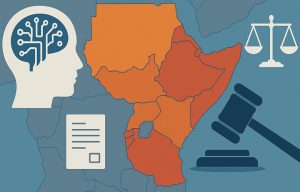
AI Governance Landscape in the East African Region
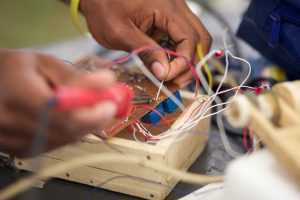
Exploring Responsible Artificial Intelligence through an African lens
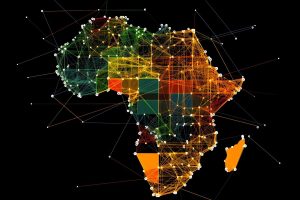
AI in Africa for Africa: Contextualizing the Evolution of the African AI Ecosystem

ETHICAL AI DEVELOPMENT IN AFRICA: INTEGRATING CULTURAL VALUES AND ADDRESSING GLOBAL DISPARITIES
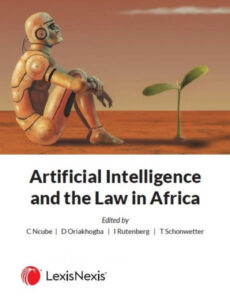
Artificial Intelligence and the Law in Africa

Use and impact of artificial intelligence on climate change adaptation in Africa
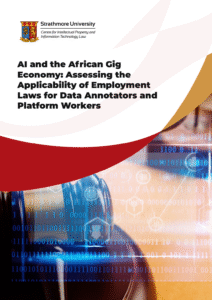
AI and the African Gig Economy: Assessing the Applicability of Employment Laws for Data Annotators and Platform Workers
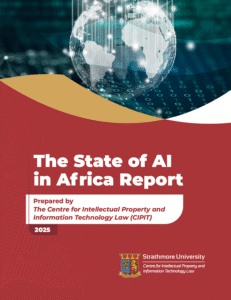
The State of AI in Africa Report

Use Case Brief: Artificial Intelligence in Health, A Focus on Africa

Informed Approach to the Design and Formulation of Artificial Intelligence National Strategy Plans within Sub- Saharan Africa
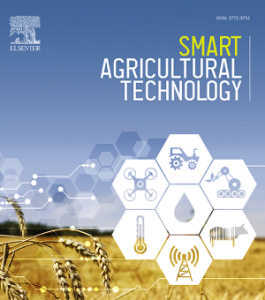
Unveiling Privacy in the AI Era – Navigating Surveillance, Ethics, and Equitable Solutions

AI in Education: The Ethical Impact of Intelligent Tutoring Systems in Kenya’s Primary Schools
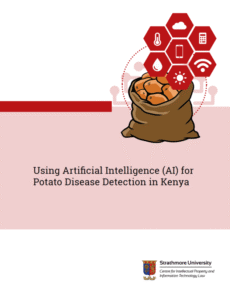
Using Artificial Intelligence (AI) for Potato Disease Detection in Kenya
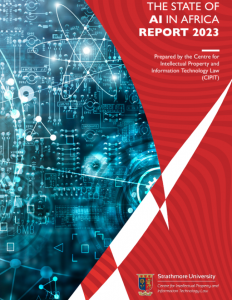
State of Artificial Intelligence in Africa 2023 Report
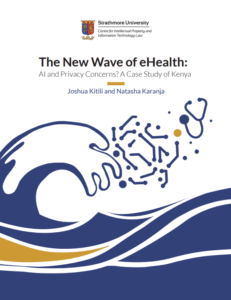
The New Wave of eHealth: AI and Privacy Concerns? A Case Study of Kenya
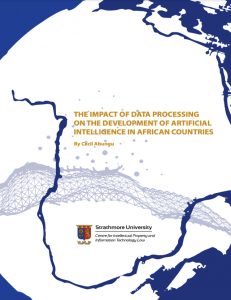
The Impact of Data Processing on The Development of Artificial Intelligence in African Countries
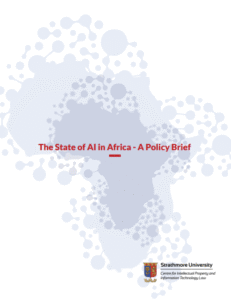
The State of AI in Africa 2023 – A Policy Brief
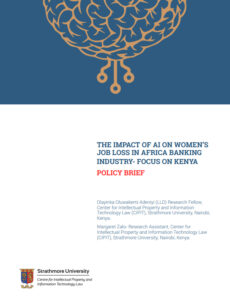
The Impact of AI on Women’s Job Loss in Africa Banking Industry – Focus on Kenya

Data Privacy in Africa’s Ed-Tech Platforms: Children’s Right to Privacy
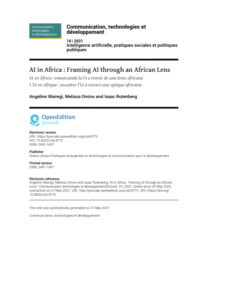
AI in Africa : Framing AI through an African Lens
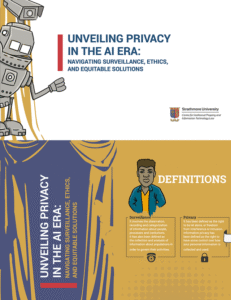
UNVEILING PRIVACY IN THE AI ERA: NAVIGATING SURVEILLANCE, ETHICS, AND EQUITABLE SOLUTIONS
WIPO Conversation on Intellectual Property and Artificial Intelligence
This video is of our submission to the World Intellectual Property Organization (WIPO) as they sought consultation on issues affecting Intellectual Property and Artificial Intelligence.
The speaker is Ms. Wanjiru Muchiri, a Research Fellow and IP expert at CIPIT at the time. The full video can be found here.
How Does AI Work?
The IP team took part in the World Intellectual Property Organization (WIPO) “How does AI work?” competition in November 2020 where participants were asked to send in short videos explaining AI in a fun, engaging, and easily accessible way. We are pleased to announce that we were selected as one of the winners and our video is displayed on the WIPO AI Exhibition page.
AI in Africa for Africa
This video is based on the article, "AI in Africa for Africa: Contextualizing the Evolution of the African AI Ecosystem" -AI in Africa for Africa: Contextualizing the Evolution of the African AI Ecosystem
Exploring Responsible Artificial Intelligence through an African Lens
This video is based on the article, "Exploring Responsible Artificial Intelligence through an African Lens" - Exploring Responsible Artificial Intelligence through an African lens
Ethical AI Development in Africa
This video is based on the article, "Ethical AI Development in Africa: Integrating Cultural Values and Addressing Global Disparities" - ETHICAL AI DEVELOPMENT IN AFRICA: INTEGRATING CULTURAL VALUES AND ADDRESSING GLOBAL DISPARITIES
No results found matching your search criteria.
Stay Updated
Subscribe to our newsletter to receive the latest research, publications, and blog posts directly in your inbox.






